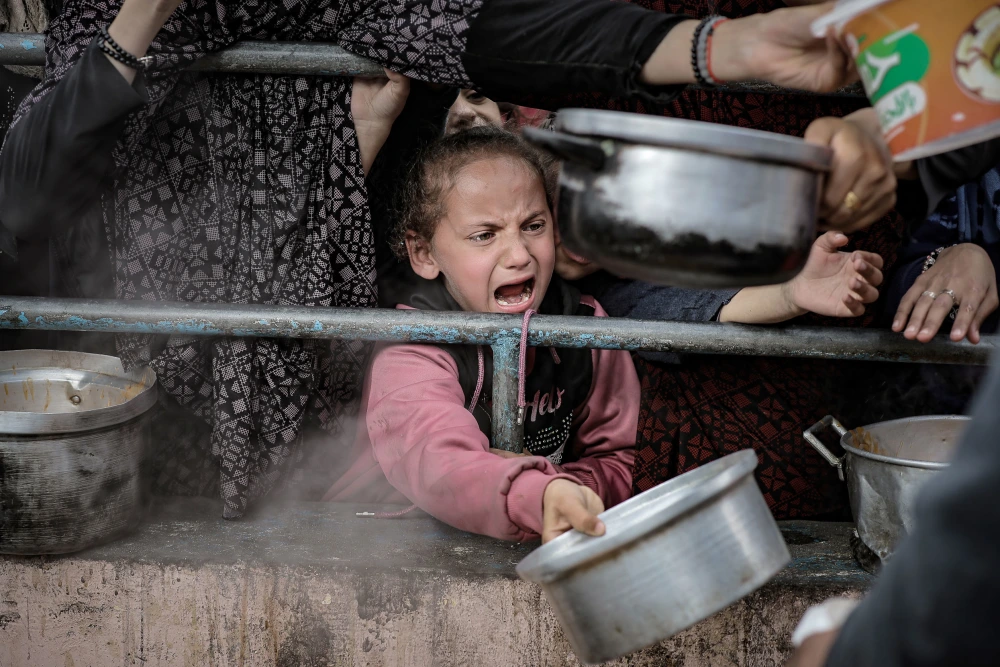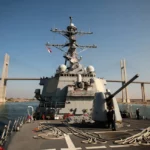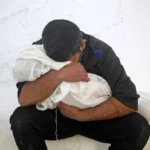A UNICEF official warned that Gaza was “poised to witness an explosion in preventable child deaths, which would compound the already unbearable level of child deaths in Gaza.”
JERUSALEM — As crowds of hungry people crowded around a food distribution point in Gaza’s southernmost city of Rafah, Magdy Hussein waited patiently in line, a dignified figure amid the chaos.
His wait proved in vain — the food ran out before he reached the front.
“For the love of God, every time we come, we leave with nothing,” Hussein said to the young men dishing out the soup, as he was filmed by an NBC News crew last week. “Please, every time I tell you, I have 25 people at home.”
“What kind of life is this?” Hussein, who is in his 60s, wondered aloud to no one in particular.
Hussein’s situation underscores a bleak reality for many in Gaza, as the Israeli military’s ground invasion and aerial bombardment continues. A dire food and water shortage is putting many at risk of infection and death, according to aid groups that have repeatedly stressed difficulties in delivering aid due to the intensity of hostilities.
Some days, no food enters the war-ravaged enclave, Matthew Hollingworth, the World Food Programme’s regional director, said in an interview from his office in Rafah, where more than 1 million people have sought shelter since Israel launched its ground invasion on the strip.
“It’s not a logistics problem. It’s not a logistics crisis,” Hollingworth said, adding that the food was available but that getting it into the enclave was proving nigh impossible. “We need the access,” he said.
“The level of desperation, of hopelessness, of despair is really shocking,” he added. “People are so scared because they don’t know where their next meal is coming from and they don’t know where they’re going to be sleeping tonight.”



















